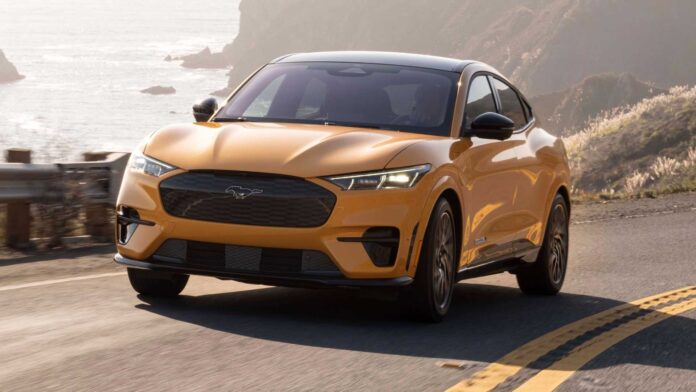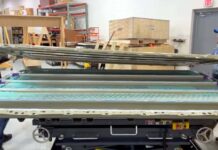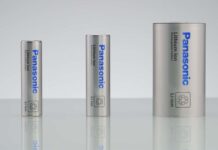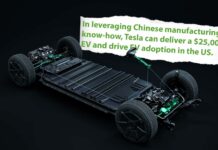[ad_1]
Ford announced it will resume construction on its lithium iron phosphate (LFP) battery cell plant in Marshall, Michigan, but the project will be significantly scaled down.
Construction at the site was halted two months ago in the midst of intense contract negotiations with the United Auto Workers (UAW) labor union. Now that the UAW has ratified its contract with Ford, burdening the company with higher labor costs, the Blue Oval has announced that the Marshall battery plant will be significantly smaller than originally planned.
“We are pleased to confirm we are moving ahead with the Marshall project, consistent with the Ford+ plan for growth and value creation,” Ford said in a statement.
“However, we are right-sizing as we balance investment, growth, and profitability. The facility will now create more than 1,700 good-paying American jobs to produce a planned capacity of approximately 20 GWh.”
That’s a 32% reduction in workforce from the 2,500 jobs announced previously and a more than 40% cut in annual output of LFP battery cells from the initial target of 35 gigawatt-hours.
The investment in the new plant will decrease accordingly, from $3.5 billion to around $2.2 billion, Mark Truby, chief communications officer for Ford, said according to Automotive News.
That said, the start of production of LFP battery cells remains on track for 2026, and Ford expects the BlueOval Battery Park Michigan to be the “first of Ford’s battery plants of this kind.”
In a call with reporters, Truby said slower-than-expected demand for electric vehicles was the primary factory in Ford’s decision to downsize the Marshall project.
“We’ve been studying this project for the past couple of months, and I think we’re all aware that EV adoption is growing, and we expect that to continue actually, but it’s not growing at the pace that I think ourselves and the industry had expected,” Truby said on the call according to Automotive News. If demand grows, the plant could increase in size, he added.
Ford plans to manufacture the LFP battery cells at the Marshall site by licensing technology from Chinese battery giant CATL. The automaker is currently importing LFP batteries from CATL for the Mustang Mach-E.
The Marshall site’s connection to CATL has drawn criticism for the project from people who argue that the factory increases dependence on Chinese battery materials.
Republicans in Congress have opposed the battery plant ever since it was announced in February, arguing that it could facilitate the flow of U.S. tax subsidies to China and leave Ford dependent on Chinese technology.
The project received approximately $1.7 billion in state subsidies, but Truby said he expects incentives will be reduced to reflect the lower jobs count.
The news comes less than a month after Ford announced it would delay EV battery production at one of its two BlueOval SK plants in Hardin County, Kentucky, citing slower-than-expected EV adoption.
The construction of both factories will continue according to plan, but production will start in 2025 at the Kentucky 1 plant only, while the second factory—Kentucky 2—will be put on idle when construction is completed instead of going online in 2026 as originally planned.
[ad_2]
Source link














